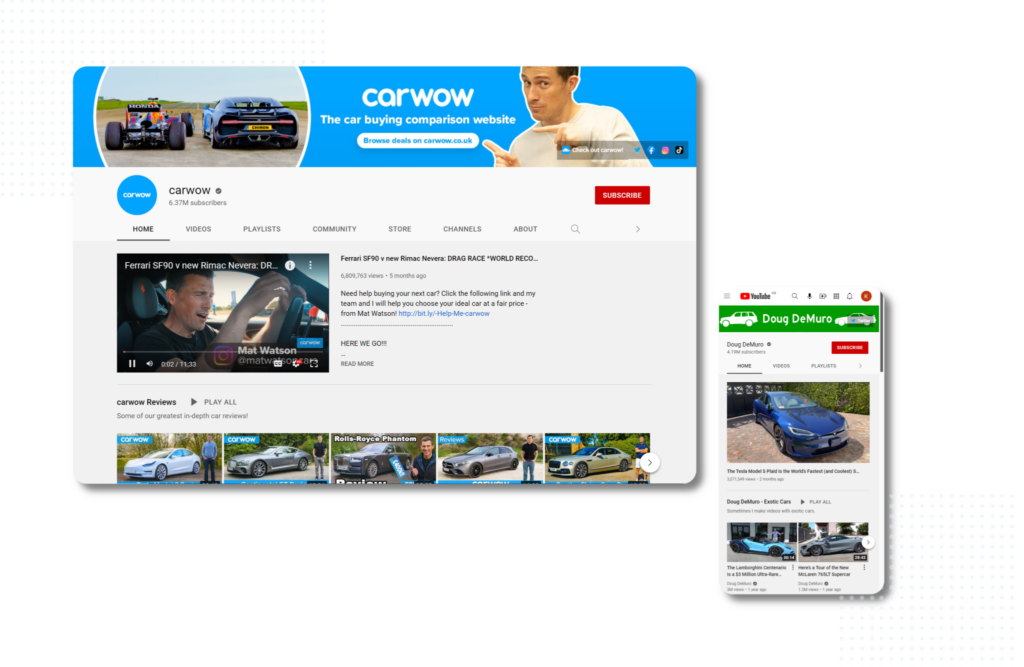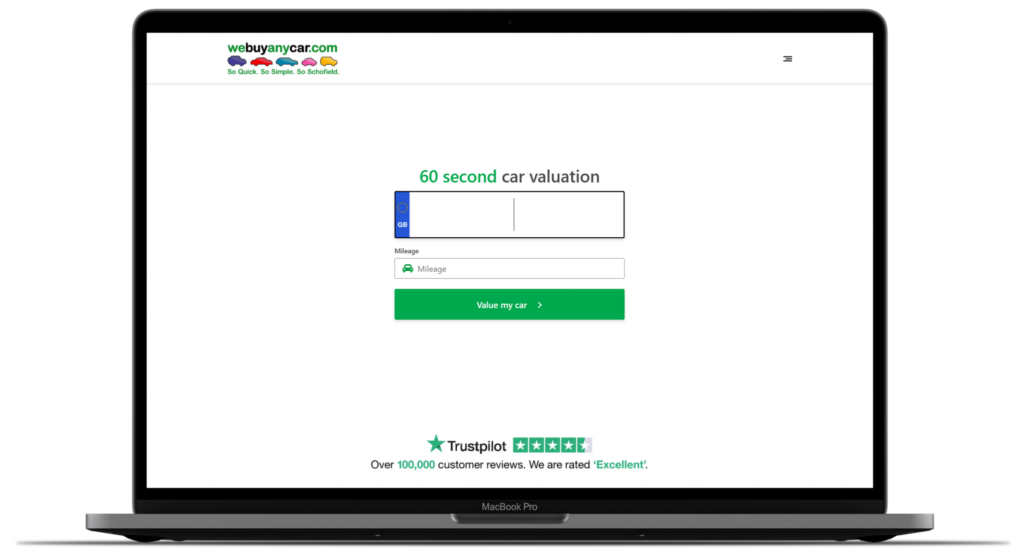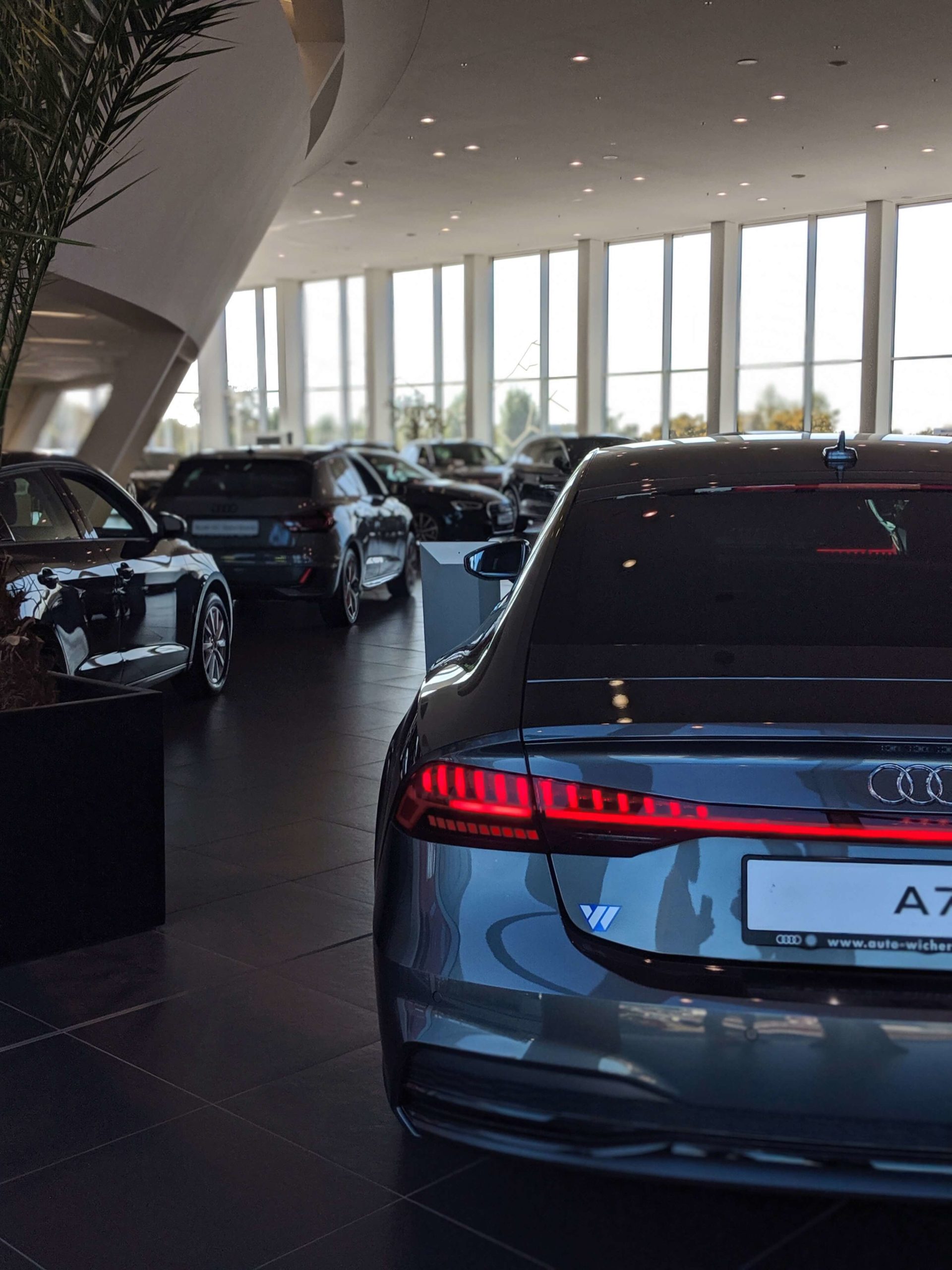Digital Disruption – it’s an interesting term that I’m sure has been used plenty of times to strike fear into the hearts of organisations—to drive them to make digital improvements to their proposition, products or offers.
I wouldn’t be surprised if there is some cynicism around the term. However, I believe there has been a few recent landmark instances where Digital Disruption has truly broken the mould when it comes to disruption of a traditionally non-digital sector.
Let’s look at the used car market, which has traditionally been a very physical process, with endless car dealers located in every town and city across the country. But, recently, there has been a rapid and significant shift online for all aspects of the car buying process – it’s being disrupted digitally, making a very interesting case study.
Looking at a car purchasing journey, the first thing most users do is begin their search and hone in on their chosen type, make and model

It’s been famously said that Facebook understands the state of your relationship based on your search and browsing activity, and also, I’m willing to wager that Facebook knows the type of new car you’re looking at from the owners clubs and classifieds you have been browsing. This is also the case with YouTube, with an estimated 70%+ of car purchasers being significantly influenced by professional reviews and amateur-owner content.
YouTube is a very interesting factor to add here, as there is a wealth of content ranging from high-level car reviews from Carwow, right down to the obsessively detailed quirks and features reviews from Doug Demuro.
So, it’s easy to see that the usual conversations with friends, families & dealers, etc., have moved to online reviews, content and influencing and well away from the traditional dealer’s forecourts to help customers ultimately decide the car they are looking to purchase.
The actual purchasing process has also hugely moved online.
Before the Covid Pandemic, the idea of buying a car totally sight unseen was unheard of. Potential buyers liked to sit in the driver’s seat, play with the infotainment and give the car a test drive before deciding to go ahead with their purchase. However, with the arrival of on-demand detailed video walkarounds and as many high-res images as a purchaser could genuinely want or need, the idea of buying a car totally sight unseen is rapidly becoming the norm. Often, the purchaser only physically sees the car when it arrives on their drive for the first time.
One interesting aspect to remember in this process is that, in general, research has shown that many customers actively dislike the typical dealer forecourt experience. It can often feel intimidating, pressured and customers are always unsure whether they are getting the best possible deal. After all, ultimately, it’s customers who are paying for the dealer staff to wax lyrical to them. Digital solutions to replace the dealer experience were always prime for digital disruption, and Covid has only accelerated this process.

Finally, when it comes to arranging the finance and part exchanging your existing car, this has also moved online with services such as webuyanycar.com and Motorway.co.uk offering just as good offers for your existing car, again sight unseen, often beating the price your local dealer can offer.
Many of the main dealers offering online purchasing now also offer and integrate loan application processing to their digital proposition – meaning the awkward wait sitting in a dealer’s office waiting for a loan application to be approved has been replaced with a 5-minute wait and a cup of tea in your living room.
Looking through all of the above examples and digital journeys, it’s no surprise that completely online end to end purchasing and delivery of vehicles is rapidly becoming the norm. This is only set to increase in the future.
For a final example of how the entire end to end car purchasing journey has moved online, we only need to look to BCA Marketplace and their recent surging dominance in the used car market. Here’s how their journey unfolds;
First, it’s important to know that BCA owns and operates webuyanycar.com, through which they source a lot of their inventory directly from the public. Through webuyanycar, BCA can offer great prices direct to the public and ensure they have a steady stream of all types of cars at all times.
Next is the retailing process, and BCA has two routes to selling their stock in both B2B and B2C models. BCA will offer certain types of vehicles through their consumer retail arm of cinch.co.uk, and the rest of their stock directly to dealers through their BCA Car Auction platform.
Finally, for cars purchased through Cinch, this is an entirely online operation, through which a buyer can arrange finance through BCA’s partners such as BlackHorse and MotoNovo. Once agreed, the car is shipped directly to the buyer.
“Any service, sector, and experience can be digitally disrupted. “
The most important thing to recognise for all of the above processes is that all aspects of vehicle sourcing, sorting, retailing, purchasing, and delivery ALL happen digitally. No visits to a forecourt, no dealerships to engage with, no banks to speak to – nothing but a few clicks of a mouse to sell your existing car, find a new car, sort the finance out and have it delivered.
While this is great experience for anyone purchasing a vehicle, traditional dealers are really starting to feel the squeeze, as they can’t compete with the cost savings and efficiencies the digitally vertical purchasing experience BCA has created and can deliver.
BCA has successfully digitally disrupted the traditionally physical used car industry, and you have to hand it to them – they have done a fantastic job.
So, what can we learn from this case study that is playing out in real-time right now?
The key thing to observe is that any service, sector, and experience can be digitally disrupted. No matter how physical the service or product you are offering, there are ways and means to take it online and reduce the amount of human interaction needed to deliver your proposition.
Let’s put it this way – if it’s possible to digitally disrupt an industry where the key commodity isn’t a digital product or service, but something physical, something that needs to be touched, engaged with and, after your house, is probably the second biggest purchase you will ever make – then how can you be certain that your sector can’t be digitally disrupted too?
“A problem-first approach can be perceived as taking more effort. It is important to demonstrate that it is not more effort overall, it’s less.”
If you’d like to hear more of our thoughts on Digital Disruption or how Steer73 can help recognise, develop and deliver opportunities for the digital transformation of your industry or sector, why not get in touch. We’d love to hear from you.

